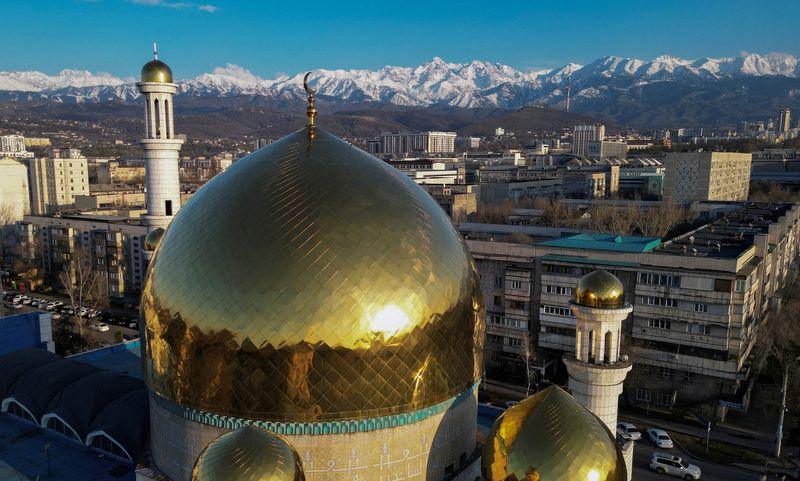((This September 13 has been corrected to include the minister’s last name throughout, after Sharlapaev of Sharlapayev))
By Olzhas Aujezov and Eric Onstad
ALMATY (Reuters) – Kazakhstan aims to increase production of metals needed for electric vehicle (EV) batteries and is issuing hundreds of new exploration permits to attract new investment in the sector, the country’s industry minister told Reuters. The former Soviet republic is positioning itself as a reliable supplier of most of the critical materials outlined by the European Union, at a time when Russia has threatened to curb exports and China is tightening control over rare earths. Kazakhstan has signed agreements with the European Union and Britain on the supply of crucial minerals.
“People know that Kazakhstan is very reliable… We have been supplying the markets for a long time,” Industry Minister Kanat Sharlapaev said in an interview this week. The Central Asian country, the ninth largest in the world by land area but sparsely populated, has deposits of 90% of the elements of the periodic table and is already a major exporter of alloys, gold and metals. The country is looking to gain market share in battery materials such as lithium, cobalt, manganese, nickel and graphite, amid rising demand for these materials, Sharlapaev said. Kazakhstan already mines manganese, but started processing manganese sulfate last year and aims to eventually capture 10% of the global market for the battery material. It also supplies phosphates for fertilizers and aims to process material needed for LFP (lithium ferrophosphate) batteries, which are becoming increasingly popular, he added.
“Building scalable battery-grade metals processing is something we want to expand,” said Sharlapaev, a former banker at Citigroup.
“We already have production facilities, it’s just a matter of expanding the range of those materials.”
RUSSIAN THREAT
Russian President Vladimir Putin said this week that Moscow should consider restricting exports of uranium, titanium, nickel and possibly other raw materials in retaliation for Western sanctions.
Kazakhstan is a major global supplier of both uranium and titanium. It also owns 2% of global nickel reserves, but for now has a negligible share of global production. The country has also yet to tap its reserves of lithium, another important metal, but research is underway.
To accelerate exploration and development, the government has streamlined exploration licensing procedures and put them online, he said.

This has increased the number of permits issued so far this year to 487, compared to 397 for all of 2023, according to ministry data. Major mining companies involved in exploration in Kazakhstan include BHP, Rio Tinto (NYSE:), First Quantum Minerals (OTC:), Fortescue and Teck Resources (NYSE:).
The European Bank for Reconstruction and Development (EBRD) said last month it had bought a stake in a company researching graphite in Kazakhstan. Although Kazakhstan is a member of Russian-led economic and security blocs, it has maintained its neutrality in the Russia-Ukraine conflict, pledged to abide by Western sanctions against Moscow, and actively participates in the development of cargo transit routes that Russia bypass.


